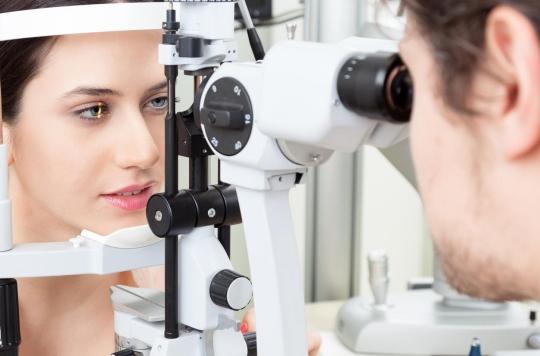In a recent study, US researchers found that cataract surgery was associated with a lower risk of developing dementia in older people.

- Cataract, which is characterized by opacification of the lens of the eye, affects more than 20% of the population after 65 years and more than 60% of patients after 85 years in France.
- The operation of the cataract, which makes it possible again to see correctly, would make it possible to reduce the risk of dementia in the elderly.
A common eye disease in the elderly. Cataract concerns more than 20% of the population after 65 years and more than 60% of patients after 85 years in France, according to Health Insurance. This pathology, linked to aging, leads to a progressive loss of vision and is responsible for a decrease in the quality of life. Its treatment is based on surgery. This operation not only restores good vision but also reduces the risk of dementia in the elderly, according to a study published in the journal JAMA Internal Medicine December 6.
Lower risk of dementia thanks to cataract surgery
To reach this conclusion, researchers from the University of Washington and the Kaiser Permanente Health Research Institute in Seattle analyzed data from a research called “The Adult Changes in Thought (ACT)”. The latter was conducted among 3,000 participants aged over 65 with cataracts. The participants did not suffer from dementia at the start of the work. The scientists followed them for two years, more precisely until they suffered from dementia.
The researchers found that participants who had cataract surgery had a lower risk of developing dementia than those who had not had cataract surgery.
Two hypotheses put forward by the researchers
The scientists could not explain why this surgery had an impact on the risk of dementia. However, they made assumptions. The latter suggested that better sensory quality linked to better eyesight could be beneficial for the brain.
Another assumption: patients operated on for cataracts are more exposed to blue light. “Certain cells in the retina are associated with cognition and regulate sleep cycles, and these cells respond well to blue light. Cataracts specifically block blue light, and cataract surgery could reactivate these cells,” explained Cecilia Lee, professor of ophthalmology at the University of Washington School of Medicine and co-author of the study.
“If our research is validated in future studies, cataract surgery could have clinical relevance in older people at risk of developing dementia,” concluded the authors of the work.

.















